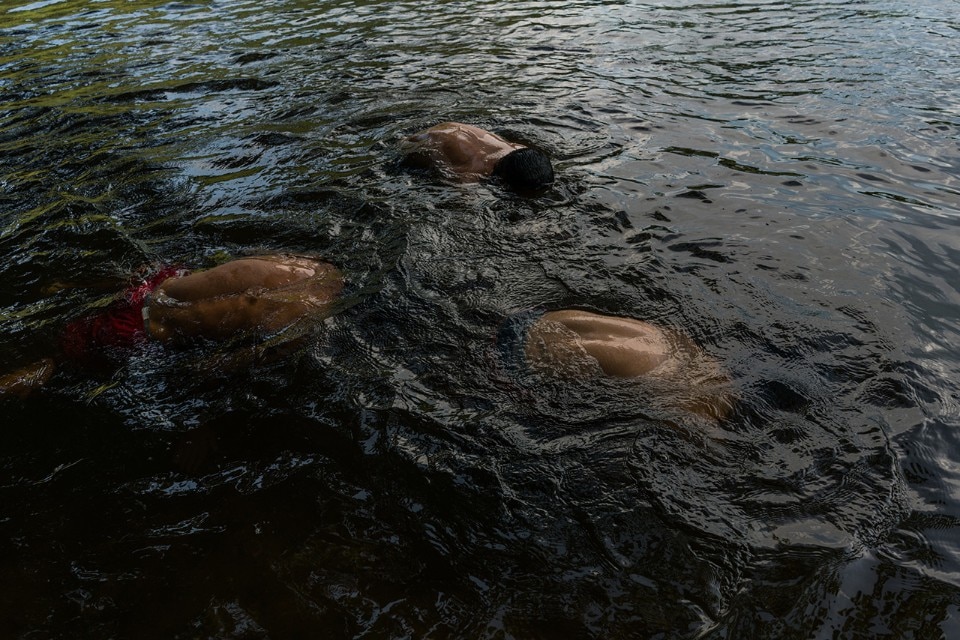The second edition of the Latin American Foto Festival, hosted by The Bronx Documentary Center in New York until July 21st, is centered on dreams. The good and the bad ones.
Each one in its own way, the nine artists selected to represent Center and South Americas choose to confront themselves with reality — tough, troubled, refractory to simplifications — through a personal interpretation which looks also like a psychoanalitic session.
A method evident in the work of Andres Cardona, who in his “Familia Naufraga” (Destroyed Family) sets up the nightmares he and his family are having after being erroneously but directly and tragically hit by the war between Colombian National Army and FARC.
The simbolism of tragedy is also central to the work of Mexican photographer Yael Martínez, where the eponymous “La Casa Que Sangra” (The house that bleeds) is the deamlike set of a fading history, made of people who have literally vanished.
Salvadoran migrants followed by Fred Ramos in “Runaway” are rather trying to leave their country chasing a dream that seems impossible to come true, while in “Blurred in Despire” Fabiola Ferrero attempts a study of how the crisis is psychologically affecting Venezuelans.
Tonatiuh Cabello Morán’s Mexico takes refuge in the collective illusion of a pop–toned catholic religion, and in his dreamy black and white Luis Soto portrays a quite unreal Guatemala cloaked in a noir mood, that he defines “Tierra de Nadie” (No Man’s Land).
Women are the heart of Johis Alarcón’s and Citlali Fabian’s works: in the first one, the Equadorian wild spirit of “Cimarrona” enhances the feminine power of the captivating subjects involved, while in “Mestiza Women” the Mexican photographer asks her friends, relatives and acquaintances to express the sense of belonging and mongrel pride in the simple yet elaborate intensity of their portraits.
Finally, a Puerto Rican take on the American Dream is the leitmotif of Chris Gregory’s “La Ruta del Progreso”, that follows the Panoramic Route commissioned in the ‘50s by president Luís Muñoz Marín on the wave of the U.S. influence on the island, a road that doesn’t seem to lead anywhere now.














